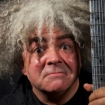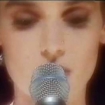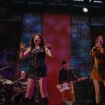As the leader of the '90s most important rock band, Kurt Cobain changed the face of popular music forever, ushering a tidal wave of grunge, punk, and alternative metal out of the underground with landmark albums like Nevermind and In Utero, the latter of which turned 20 this year with an elaborate anniversary reissue. Here, childhood classmate, sometime collaborator, and Melvins frontman BUZZ OSBORNE mourns his friend.
"I really can't remember the first time I met Kurt. I had a bunch of classes in school with him. I remember him as having a really amazing, dark, black sense of humor. He would do stuff like draw pictures of the teachers having things happen to them, that looked just like the teachers, you know. I remember when we were in high school, one of them was a Pac Man game that included all the teachers we had being eaten by the Pac Man—but it was far more vicious.
"We weren't big socialites in the high-school scene, believe it or not. We grew up in a highly depressing, oppressive environment. And ultimately, that kind of thinking, that kind of upbringing led to his death. It's like being in a straight jacket. It was hopeless and pointless. You know, I remember when I took him to his first punk-rock concert, which was Black Flag. It really put him over the edge. I mean, once you see something like that, an extraordinarily good show… I just remember him saying, 'That's exactly what I want to do. That's it. This is me.'
"We played music together all the time: me, him, [Nirvana bassist] Krist Novoselic, and Dale [Crover, Melvins drummer]. That's why Dale ended up playing with Nirvana [on their first demos]. Kurt wasn't a very good guitar player, but it really didn't make much difference. What he could do was put two chords together with a vocal melody in a way that people liked. Technical ability rarely has anything to do with making music.
"I was there at the very last show Nirvana played, which was the last time I saw him. I was pretty bummed out—not so much about the show but about what was going on around the whole thing. I didn't like a lot of the people who worked for him—I thought they were a bunch of assholes. He wasn't happy. The very last thing he ever said to me was, 'I should just be doing this solo.'
"At that last show, I told him to leave, get out, run. He needed to get off drugs. If he wasn't on drugs, none of that would've happened. Kurt, he could've had a future, he could've turned his life around, and he would've been a wonderful person. It wouldn't have been easy, but he could of done it. I would've preferred that. That or no success whatsoever. I would be far happier if he had never had one iota of success and was alive. The music and all that stuff means nothing to me above and beyond that.
"I'm sorry but I refuse to be one of those people that's just going to go, It was great. I don't feel that way. And it offends me when people try to make it like that. This is not a happy story.
"He's dead and gone and over. And I'm not over it."
Below, see Buzz Osborne look back on working with Kurt Cobain on the Melvins' Houdini:












